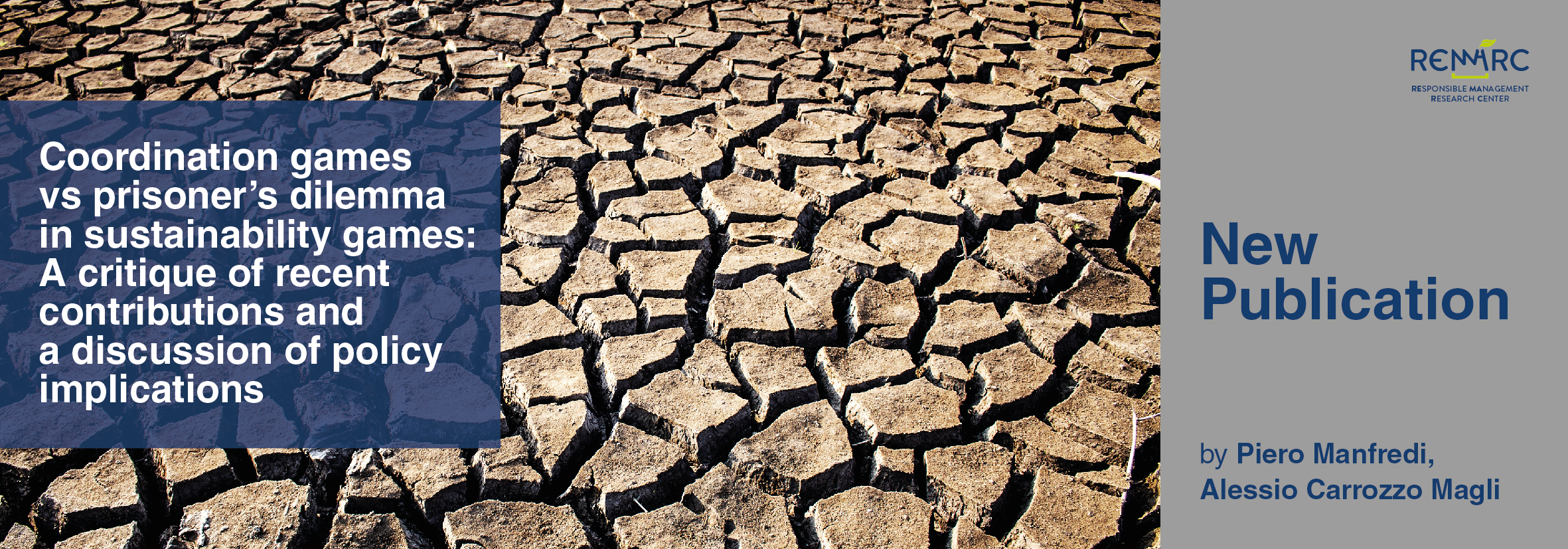Coordination games vs prisoner’s dilemma in sustainability games: A critique of recent contributions and a discussion of policy implications

A new publication by Pietro Manfredi and co-authors published in Ecological Economics.
Coordination games vs prisoner’s dilemma in sustainability games: A critique of recent contributions and a discussion of policy implications
Abstract
Recent works have suggested that most games arising in climate change diplomacy and sustainability choices, should have a coordinative nature rather than that of a prisoners’ dilemma, as typically suggested. In this note, after having proposed a definition of sustainability game, the authors critically review the merits and shortcomings of these contributions and use a simple, yet sufficiently general, model to recall the difficulties for coordination to emerge in such games. Indeed, as far as the players’ short-term interest is involved, at least in some degree, these games will most often generate a prisoner’s dilemma, thereby allowing coordination only upon long-term interactions possibly under the pressure of a continuing environmental deterioration. A counter- intuitive result is proved, showing the circumstances when the deterioration of the environment can hinder cooperation in repeated games. The authors conclude by highlighting a number of factors forcing “brown” behaviour and therefore threatening coordination, first of all poverty and inequality, and pinpointing that, though ability to enact coordination will be key for a successful battle for climate, undue emphasis on coordination might be the deleterious in view of its optimistic message.
The article is available online here.



